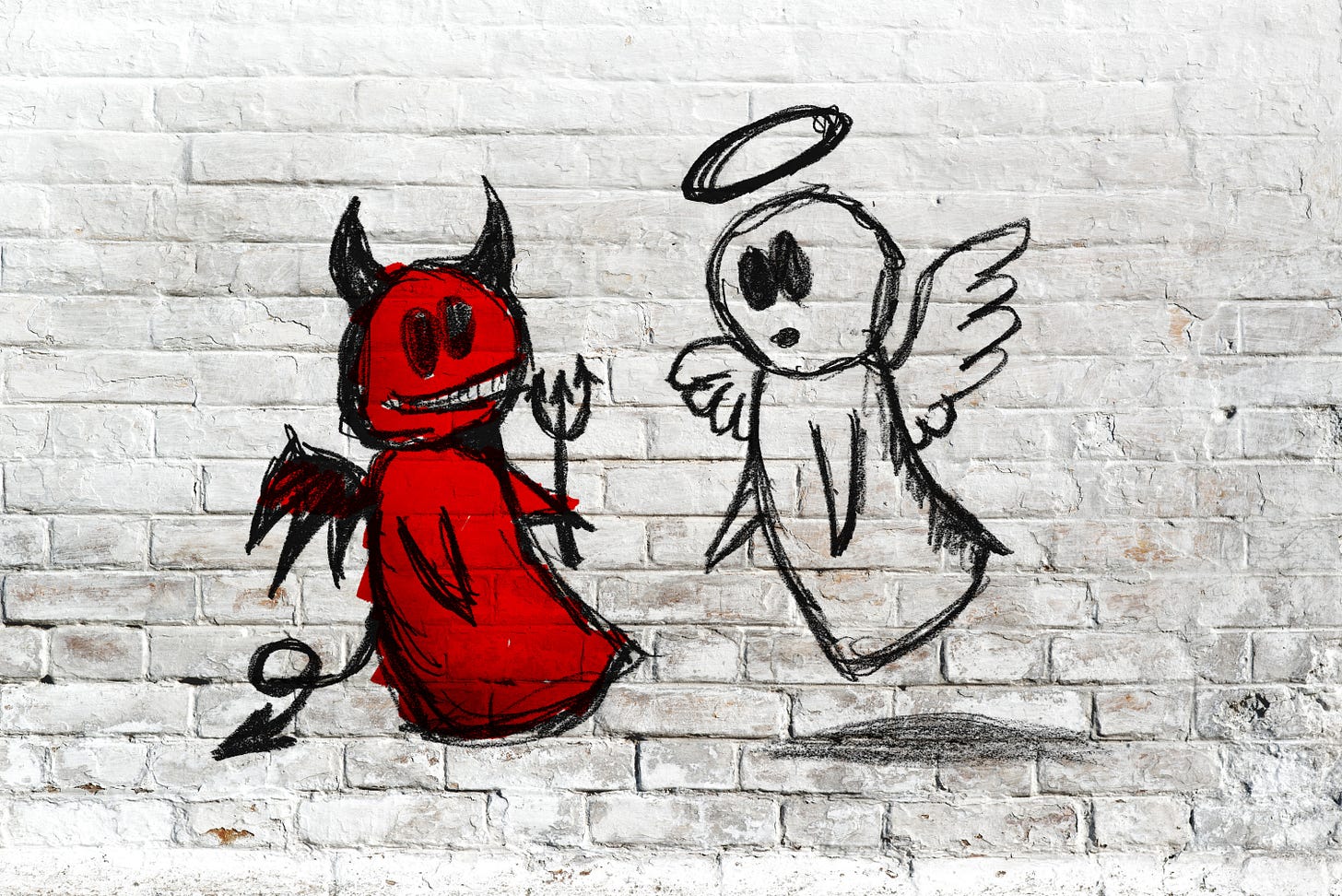Jeffrey Epstein: Villain or Martyr?
Was it Epstein's behavior that was bad or just his timing?
Evil behavior may be sickening, but that doesn’t mean evil people are sick
Morality excludes evil, but normality includes it
Since we continue to regard increasingly vile behaviors as normal, there’s a good chance Epstein will eventually be retconned into a martyr
For several decades we psychologists looked upon the whole matter of sin and moral accountability as a great incubus and acclaimed our liberation from it as epoch making. But at length we have discovered that to be free in this sense, that is, to have the excuse of being sick rather than sinful, is to court the danger of also becoming lost… In becoming amoral, ethically neutral and free, we have cut the very roots of our being, lost our deepest sense of selfhood and identity, and with neurotics, themselves, we find ourselves asking: Who am I, what is my deepest destiny, what does living mean?
— Hobart Mowrer, former President of the American Psychological Association
Evil isn’t sickness
Predators like Jeffrey Epstein1, Jerry Sandusky, and Jimmy Savile are frequently described as “sick.” But while there’s no doubt that their actions are sickening, such men are not actually sick. That characterization minimizes their crimes by painting them as unwitting victims of an affliction rather than what they really were — cunning victimizers who afflicted others. These men are not sick. They are, like the rest of us, sinful, which is to say evil. And evil is a spiritual condition, not a medical one.
Why is this distinction important? Why does it matter whether we refer to them as evil or sick? It matters because these terms represent two different approaches to morality, and those approaches send society in opposite directions and incur vastly different consequences.
Morality as a fixed standard
When morality is an unchanging standard — when evil behavior is explicitly called evil and dealt with accordingly — society becomes more cohesive and stable because morality:
allows for a culture that is held together not by force but by shared values,
keeps would-be tyrants accountable by placing the definitions of right and wrong outside of their control, and
provides a constant, reliable foundation for politics, economics, law enforcement, and every other aspect of human society.
Morally-anchored societies punish evil behavior, both to serve the cause of justice and to provide a disincentive to any who might be inclined to similar lawlessness. The net result of all of this is a society whose members are relatively free, safe, and prosperous2.
Normality as a replacement for morality
The results are markedly different when we regard evil not as a moral problem but a medical one. As Dr. Mowrer describes above, America has psychology to thank for changing its perspective on the matter.
As an inherently atheistic discipline, psychology began with the faulty premise that there is no God, and from there it was a short distance to eliminating morality altogether. The reasoning goes something like this:
Given that God does not exist, there is no objective moral standard.
Without an objective moral standard, there are no such things as good and evil.
Without good and evil, behavior cannot be classified as right or wrong, but only as normal and abnormal. Or, in medical parlance, healthy and sick.
When a society adopts this mindset, it cuts the line that anchored it to morality, freeing it up to accept behaviors it previously rejected. And since man’s natural trajectory is toward immorality, the behaviors it comes to accept are far more likely than not to be immoral.
Including evil
Consequently, a moral deviant such as a pedophile will not be coerced into conforming to society, as he would under a system of morality. Instead, society will be coerced to conform to the pedophile, which is achieved by redefining "normal" to include pedophilia. In modern America we call this "being inclusive," and it is predicated upon the belief that it is society, not the pedophile, who is in need of correction.
Armed with this worldview, we’re forced to conclude that the fundamental tragedy of a Jeffrey Epstein or a Jerry Sandusky is not what they did but when they did it -- before society was sufficiently inclusive. These men were not criminals but pioneers; and in Epstein’s case, a martyr for the cause of marginalized "minor-attracted persons."
Who knows, one day they, like pederast Harvey Milk, may have American naval vessels named in their honor. How does the USNS Jeffrey Epstein strike you? In a world where the White House gives greater prominence to the sexual-depravity flag than the American one, no debasement is outside the realm of possibility.
(who did not kill himself)
This obviously presumes a moral standard that values human freedom, safety, and prosperity



